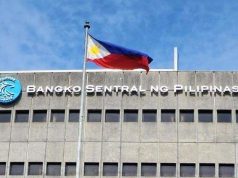
MANILA – Manufacturing output posted double-digit growth in both volume and value terms in January 2018, recovering from a series of declines in the last months of the previous year, the government reported on Tuesday.
The Philippine Statistics Authority’s Monthly Integrated Survey of Selected Industries (MISSI) showed that Volume of Production Index (VoPI) of the manufacturing sector grew by 21.9 percent last January from 14.9 percent in the same month last year, and a reversal from the 9.2-percent decline last month.
The Value of Production Index (VaPI) also rose to 20.4 percent in January 2018 from 13.7-percent during the same month last year.
In a statement, National Economic and Development Authority (NEDA) Director-General and Socioeconomic Planning Secretary Ernesto Pernia attributed the growth of the manufacturing sector to expansions in petroleum products, construction-related products, some export-oriented products and food manufacturing.
Pernia said these offset the declines in wood products, tobacco, transport equipment, and rubber and plastic products.
“Manufacturing output is expected to sustain growth in 2018 on the back of robust consumer demand, higher government consumption, and continued gains in investments. The sustained momentum in global trade growth will also provide additional boost to manufacturing growth, particularly export-oriented sectors,” he said.
The NEDA said higher consumer demand, particularly on manufactured goods, is also expected to continue with the increase in households’ disposable income due to the recently implemented Tax Reform for Acceleration and Inclusion (TRAIN) law.
Pernia further said industry outlook for the first quarter of 2018 remains optimistic as improvement in production capacity, new product lines and enhanced marketing strategies are anticipated to increase both production and sales.
However, he noted that firms remain cautious on some risks such as the exchange rate, higher global commodity prices and weather-related disturbances.
“The perceived negative effects, however, will be offset by improved infrastructure that is partly being financed by TRAIN. Moreover, the succeeding packages of the TRAIN are intended to make our tax regime internationally competitive,” he added.








